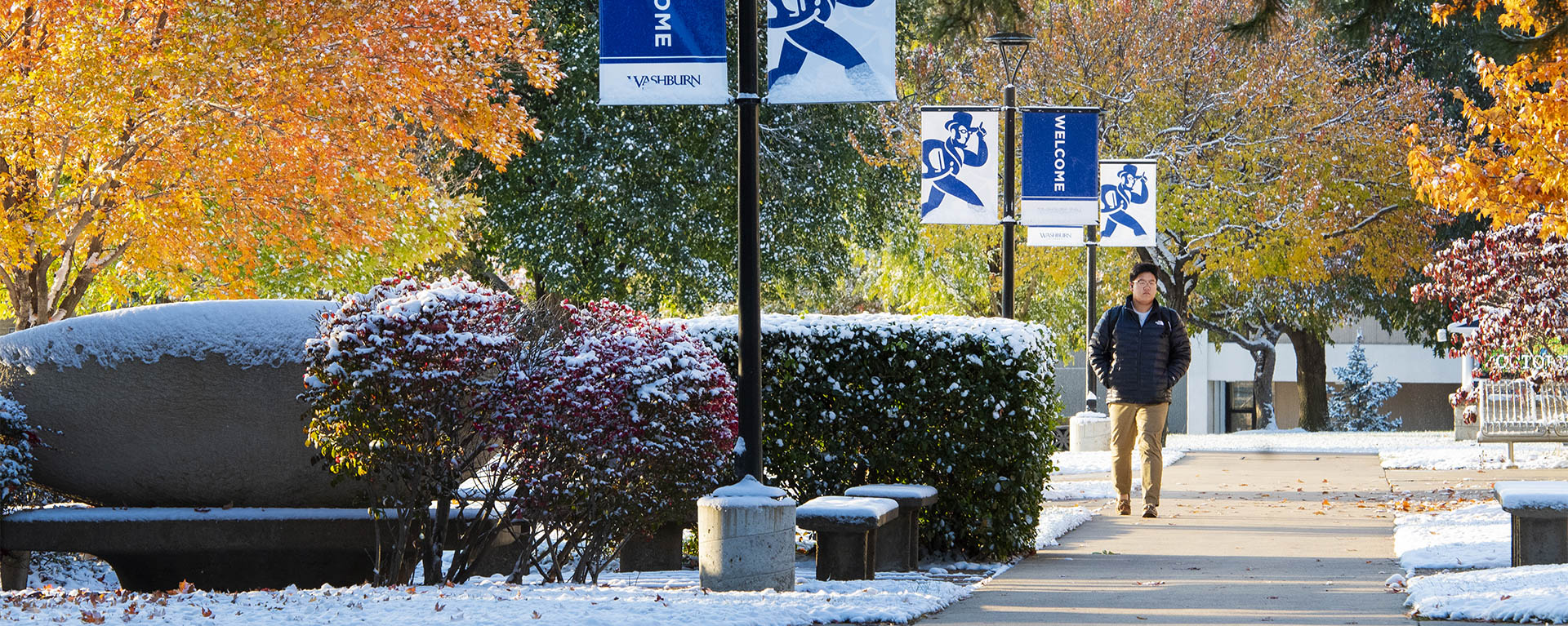
First Generation Mentoring Program: Best Practices
The first year can be a tough time for any college student: a period of transition, self exploration, and differentiation from family. It can be difficult for first generation students to find support tailored to their unique circumstances. The First Generation Mentoring Program aims to provide first generation freshmen with context, guidance, and community to support their growth as first year Washburn students.
Program Expectations
As a mentor you are a role model to your student. Be sure to create a comfortable but professional environment. Your student will turn to you for advice, so give non-judgmental, sincere and straightforward feedback. You can help your student by providing support, but also by challenging him or her. Introduce contradictory ideas; question the student’s assumptions and ask open-ended questions. Use your experiences, and examples of your successes and failures to help students through this important period of transition. In order to participate, you must be willing to create time to meet with your student.
Getting started
How can I be most useful to my mentee?
Where to find help/get answers to questions
Dates to remember
What if my mentee and I lose contact?
Getting started
- Set up an introductory meeting within two weeks of your receiving mentoring match – if you are meeting in a public location, be sure your mentee knows how to identify you, and that you have exchanged contact information in case last minute problems arise.
- At your first meeting, talk about why you're involved with the Washburn Mentoring Program -- share openly, as you'll be setting the tone for communication within your relationship.
- Try to establish an informal, but mutually respectful, rapport.
- Learn about your mentee via open-ended questions (background, interests, fears, challenges). Allow lots of opportunity for questions and be sure you’re both spending some time talking.
- Exchange complete contact information, including email and phone numbers.
- At the end of this (and each) meeting, make a plan for your next contact; be sure you both have input about the type of meeting, the date, and the location (if in-person).
- Encourage your mentee to stay connected with the First Year Experience office, which can provide them with additional resources and support during their time at Washburn
- Be proactive in scheduling contact and encourage your mentee to reach out as well.
- Remember what your mentee asks/talks about and follow-up later.
- Not all interaction needs to be formal - a text message to check in is often appreciated and can give you a sense of how things are going.
- Be aware of financial considerations for your mentee. For example, for in-person meetings, be willing to pay the bill. Meetings don't have to be pricey, though - coffee or tea is inexpensive, often easy to schedule, and can provide a space for good conversation.
How can I be most useful to my mentee?
- Be a good listener and make no assumptions - each mentee has a unique set of needs.
- Reinforce his/her sense of belonging in the Washburn community.
- Offer practical advice based on his/her questions and your own experience.
- Learn about and share the resources at Washburn, as applicable to your mentee's requests.
- Be consistently available and be a positive part of your mentee's life.
Where to find help/get answers to questions
Define the nature of the question:
- Do you have questions about mentoring? Talk with other mentors in the program and/or members of the First Year Experience Office at Washburn (Mabee Library 219)
- Does your mentee have questions about resources? Refer to the student resources web page; do some research for your mentee, s/he will find this helpful.
Dates to remember
- Find out your mentee's birthday, when mid-terms are, etc., and say hello around these dates. Important Washburn dates available on the Academic Calendar.
- Consider sending a care package during Success Week (penultimate week of the semester).
- Always know when your last contact with your mentee was, so that you can track the dates and reach out if it has been more than several weeks since you last talked with each other.
What if my mentee and I lose contact?
- The best way to prevent losing contact is to begin by building a strong relationship - multiple contacts early in the year, along with an expectation that your mentee will reach out to you.
- Communication is key!! No matter the circumstances, try to be consistent in communicating.
- If your mentee seems unresponsive from the beginning of the program, email them to ask if they are still interested in the program - the answer might be "no," and your mentee may be relieved that you asked.
- Sometimes events in a mentee's life can prevent them from engaging in the program. If your relationship is active but drops off, reach out to ask if everything is okay, what you can do to help and, if it seems appropriate, ask if they are still interested in the program.

